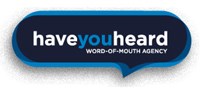The campaign also saw the brand's net promoter score increase from -37 to +41, and resulted in some 191,216 conversations about the brand against a total target market of 80,640.

According to co-owner and joint MD, Jason Stewart, this success is not uncommon in the field of influencer marketing because, as a discipline, it taps directly into the fact that human beings are hard-wired to be influenced.
"When it comes to marketing communication, this translates directly into high trustworthy scores for forms such as 90% for recommendations from people we know when it comes to products and services versus only 59%, 58%, 57% and 56% for billboard, newspaper, television and magazine advertising respectively.
"Trust provides credibility and is the key behaviour influencing purchasing decisions. Moreover, South Africans are more likely to rely on word-of-mouth for these peer recommendations - 95% more likely than the average consumer at 69% is. These statistics suggest that brand owners who are not considering word-of-mouth or influencer campaigns are missing a trick."
The company recently conducted several township immersions for its clients to expose them to how word-of-mouth works in these locales. This highlighted that women living in the townships, through their daily interactions, say an average of 21,000 words a day; 7,000 of these specific to brands.
How did this brand go about influencing the market about its product? Stewart said the first step was to find its fans - passionate fans should be engaged (at a very low cost) to drive viral business growth. Thereafter, it identified its influencers; those who were more than fans because they have relevance in the community, people in the community aspire to be like them and they are credible - in other words, trustworthy.
That done, it created a value exchange. Word-of-mouth is not sponsorship or endorsement; huge sums of money do not exchange hands because that detracts from credibility and trust. Instead, clients can offer incentives and rewards - often intangible - that are even more valued. Incentivised, the influencers set about seeding the product within the community and starting the conversations.
"The final step was to measure the reach and impact of the influencers. Importantly, conversation targets were exceeded each weekend the influencers met with their friends and peers.
"Equally important, the net promoter score - that is, people who would talk positively about the brand if they were engaged in conversation about it grew every month. It started at -37 with a score of for the 'detractor' category, 25 for the 'neutral' category and '19' for the positive category. At the end of the intervention, the score for 'detractors' was 11, 'neutrals' 37 and 'promoters' 52, equivalent to a +41 final score," concludes Stewart.